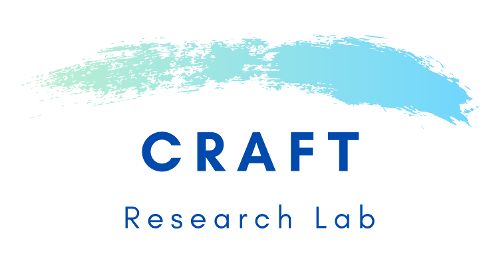Partners
Fraunhofer ISI,Germany

Websites:
Competence Center Foresight
Fraunhofer ISI: The Fraunhofer Institute for Systems and Innovation Research ISI is one of the leading innovation research institutes in Europe.
Our expertise in the area of innovation research is based on the synergy of the technical, economic and social science knowledge of our staff members. In our work we apply not only a broad spectrum of advanced scientific theories, models, methods and social-science measurement instruments, but continually develop them further, utilizing the empirical findings from the research projects conducted.
Our research is aimed at tackling the challenges facing present and future generations. We make an active and relevant contribution to solving current problems at national and global level. We help to chart the course for industry, policy and society and provide strategic advice on innovations and transformations towards a sustainable future.
Our holistic systemic view is the result of including diverse perspectives and different societal stakeholders.
***************************
Radboud University, The Netherlands

Websites:
Stichting Radboud Universiteit
Institute for Science in Society
Centre Connecting Humans and Nature
Radboud University is a broad, internationally oriented student-centred university that combines excellent education with leading-edge research, focussing strongly on societal issues and on transferring knowledge to society. Research is carried out in 15 research institutes, while Radboud University provides education to 20,000 students via 36 bachelor and 76 master programmes. The Faculty of Science conducts high-quality society-driven research and provides bachelor and master courses in the natural sciences, mathematics, and computing sciences.
The Institute for Science in Society (ISiS) is positioned within the Faculty of Science and dedicated to interdisciplinary academic research and education. Our mission is to analyse, assess and improve the societal embedding of science and technology through research, education and outreach. The main research themes are (a) Socio-Ecological Interactions and (b) Responsible research. ISiS brings together a group of experts coming from various disciplines and backgrounds (science, social science, science studies and philosophy) to understand how society is shaping science and vice versa. Our work is carried out in close collaboration with other researchers in the natural sciences (both within and outside the Faculty of Science), with peers and colleagues at other universities (nationally and internationally), but also with societal stakeholders. Interactive research is a basic attitude. It means seeing scientific and societal stakeholders not as ‘consumers’ of our knowledge, but as sources of inspiration and information and as partners in our work. Sharing preliminary analyses and assessments is bound to make our research more relevant, robust and comprehensive. Interaction means that we see ourselves not as outsiders, but as active participants in knowledge production and sustainable development.
Proximity to science is of key importance. Positioned within the Faculty of Science, we offer expertise to the other research Institutes to collaboratively strengthen the social robustness and responsiveness of academic education and research. Moreover, within ISiS the Centre Connecting Humans and Nature is positioned. CCHN studies people’s connectedness with nature in different contexts and over the human life course. CCHN has the mission to contribute to connecting humans and nature through research and by organizing and encouraging dialogues within and between science and society.’
***************************
Volonteurope, Belgium

Website:
Volonteurope
Volonteurope: Volonteurope is an international non-profit network of nearly 40 member organisations across Europe and beyond. Volonteurope aims to promote volunteering, active citizenship and social justice in Europe and beyond. The vision of Volonteurope is a world where the principles of inclusion, collaboration, sustainability and equality guide the thinking and practices in Europe and beyond. We strive for social justice for all. The mission of Volonteurope consists of working, in collaboration with its members and partners, to defend volunteering and citizens’ action as a way of bringing social justice to the world. In order to achieve its objectives, Volonteurope:
- a) Actively encourages political decision-makers to protect and improve the interests of volunteers and active citizens all over the world;
- b) Supports the exchange of information and good practice relative to all the aspects, specific or general, which involve volunteering and active citizenship;
- c) Promotes to the European Institutions, the Council of Europe and to all the national or international institution, policies which support, recognise and reward volunteering;
- d) Organises and supports any initiatives of international exchanges of volunteers and generally any person involved in social action and volunteering;
- e) Lobbies against any form of criminalisation, penalisation or retaliation of or against acts of solidarity by volunteers and active citizens across the world;
- f) Engages in any legal means to defend the role of volunteering and active citizenship as a means of improving universal social justice. In addition, Volonteurope organises operations of collective interest and offers individual services which are in agreement with its objectives.
***************************
UiT The Arctic University of Norway, Norway


Websites:
UiT The Arctic University of Norway
UiT The Arctic University of Norway
UiT The Arctic University of Norway is the northernmost university of the world. UiT´s key research focuses on the polar environment, climate research, indigenous people, peace and conflict transformation, telemedicine, medical biology, space physics, fishery science, marine biosprospecting, linguistics, and computational chemistry. Almost 18000 students and 4000 staff study and work at the UiT. UiT´s faculties offer, in spite of a dedication to Northern issues, a broad range of study programmes. The Norwegian College of Fishery Science (NCFS) is the professional unit at UiT that is responsible for research and education directed at both the Norwegian and the international fishery and aquaculture industry. The NCFS was founded in 1972 and is currently the leading competence institution for fishery and aquaculture in Norway.
CRAFT Lab
The Research Group CRAFT leads research activities integrating various disciplinary perspectives and academic/non-academic knowledge, aiming to provide science, solutions, and advice for societal, industrial, and political adaptation to complex future challenges in the marine and coastal areas. The keywords of the group are critical futures thinking, inter-/transdisciplinarity, and new technologies and competences in the Blue Sector.